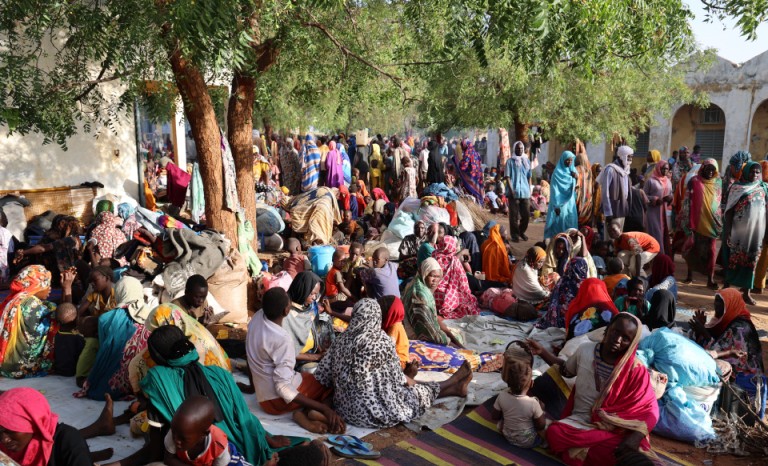Chad: Nearly 1m refugees, returnees expected by end of 2024
July 3, 2024 (DJAMENA) – The Chadian government estimates that the number of refugees and returnees could reach a million by the end of year, citing the persistence of conflicts in Sudan and the constant influx of new refugees and returnees.
Arrivals in Chad have increased in the past weeks following the recent escalation of fighting in El Fasher, North Darfur, and atrocities reported in Al Jazirah State.
Over 600,000 Sudanese refugees, according to the United Nations says, have arrived in Chad since the start of the conflict in April 2023.
According to the agency, the numbers are expected to continue to increase as many civilians remain trapped or spend weeks hiding during their flight. At least 1,000 people a day, the agency stated, still cross the border into South Sudan.
Neighbouring countries have also shown great solidarity in welcoming those fleeing the war, but services in host communities remain overstretched, making it extremely difficult for refugees to settle, make a living and rebuild their lives.
Two new countries, Libya and Uganda, have been incorporated into the regional refugee response, in addition to the Central African Republic (CAR), Chad, Egypt, Ethiopia and South Sudan.
With more refugees continuing to arrive since the escalation of fighting in the Darfur region, local services available across the country are overstretched. Refugee families are being forced to sleep in the open as there is a lack of shelter.
Fourteen months into the war, thousands are still leaving Sudan every day, fleeing brutal violence and abuse, death, disrupted services, limited access to humanitarian aid and looming famine.
In the Central African Republic, 24,000 refugees remain without any form of humanitarian aid while 180,000 new arrivals in Chad are still waiting to be relocated away from border areas.
In Egypt, nearly 75,000 refugee children are not enrolled in school while South Sudan urgently needs to expand refugee camps and settlements to avoid severe overcrowding in existing facilities.
Expected heavy rains in some of the countries also risks complicating the delivery of humanitarian aid, particularly to border areas. As aid, essential services and opportunities remain insufficient, there is the risk of many refugees choosing to move further afield.
As the impact of the conflict in Sudan continues to spread, the UN Refugee Agency (UNHCR) and partners are seeking additional resources to support millions of people forced to flee.
Aid partners now require $1.5 billion, up from $1.4 billion in January, to assist and protect up to 3.3 million people forced to flee, as well as local communities in neighbouring countries until the end of 2024.
Since the conflict started, 10 million people have fled their homes in Sudan, with many displaced multiple times in search of safety. Of these, nearly 2 million people have arrived in neighbouring countries, with 7.7 million newly internally displaced and 220,000 refugees who have self-relocated within the country.
(ST)

